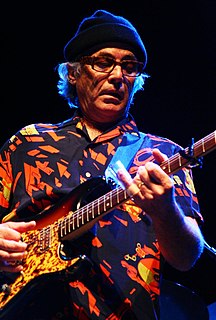A Quote by Tod Machover
One of my interests in music has always been what it means, why it affects us the way it does.
Related Quotes
All of us have been through relationships; there have been periods of time when we've been single. It's something that everyone experiences. It's a matter of making that observation and then start to ask questions about it: Why is it like that? And why do we feel that? And why are we organized this way? Isn't there any other way?
People all the time try to take my outside interests and make them a negative. My life has always been like that and it always will be like that. I don't think it necessarily means that while I'm concentrating on tennis I can't put 100% into it. If I didn't have 100 different interests, I probably wouldn't be as good a player.
Music is one of my big interests - I once had a rather fanciful ambition to be a singer - and of course music is philosophically fascinating. What it is for music to express emotion strikes me as one of the most difficult questions - it's hard to say what it precisely means, although it plainly does mean something. But whenever I have tried to say something about this, it has come out as either banal or pretentious or both.








































